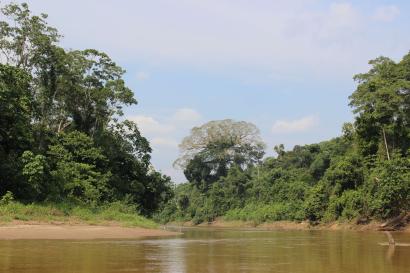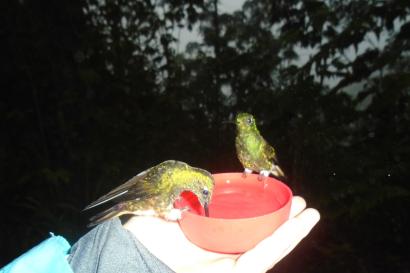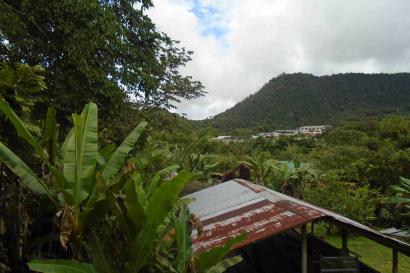Today, a group of other students and I hiked to the first base camp of Cotopaxi, the second-largest active volcano in the world. At about 16,000 above sea level, the base camp (or “Refugio” in Spanish) is far enough up that there is noticeably less oxygen. Climbing Cotopaxi with strong winds pushing against us, icy temperatures, and not enough breathable air made this one of the toughest hikes of my life, even though it wasn’t that far of a distance. Despite these factors, it’s a highlight of my past two weeks in Ecuador. Reaching the base camp was incredibly rewarding, and doing the hike with a group of other students brought us closer together.
We started out in a bus that the 15 of us chipped in to rent for the day, along with a guide and driver at the bottom of the mountain. To hike to the base camp, you drive partway up the mountain on a dirt road filled with divets that sent our bus bumping up and down like a car with hydraulics. When we reached the parking lot we struggled to open the bus door against the wind, and eventually stumbled out only to be blown back a few feet by the strong gusts.
We then proceeded with the hour-long hike pushing against the wind, slowly, stopping frequently to catch our breath. At that high up, it’s hard to breathe because the oxygen partial pressure is so low - between this difference in atmosphere and the barren, red dirt terrain, it truly looked like a different planet. When we finally reached the base camp we all sat together inside; drinking hot chocolate, looking at signed flags from all over the world, and feeling a part of something bigger than our little group of students.
Now that I’m in a warm bed writing this with plenty of oxygen & steady wifi (the two basic human necessities), today’s hike up Cotopaxi seems like a good reflection of my study abroad experience so far. Moving to a Spanish-speaking country as someone who speaks very little Spanish has been an uphill battle for sure - even the simplest interactions become 10-minute struggles littered with “no comprendo”.
Just like the hike up Cotopaxi, these frustrations with my host family (and all the other adjustments that come with moving to a new country) have been difficult but worth it. Because despite the language barrier, I’ve already formed close relationships with the two members of my host family. There’s something universal about human interaction that goes beyond the actual words you’re saying, and we often rely on tone and body language to communicate.
Bonding with my host family at home and reaching the base camp of Cotopaxi to me felt very similar - both came with a sense of accomplishment, because stumbling through communications or fighting icy winds requires a certain level of patience and perseverance. They also both came with a sense of closeness to those around me, which to me is what made the hike and my time here so far worth it.
I know that there will be plenty more tough situations while I’m here, but I also know that the struggle is worth it because of all the great people who are doing it with me. Plus, sometimes, the struggle comes with incredible views.

Katie Vartenigian
<p>My name is Katie Vartenigian, and I’m a third-year biology student at the University of Maryland. After graduation, I want to go into science writing, preferably for a publication that allows me to travel. When I’m not studying, I like to read, write, play racquetball, and spend time with my friends. I can’t wait to study abroad this semester in the Galápagos and explore Ecuador!</p>








